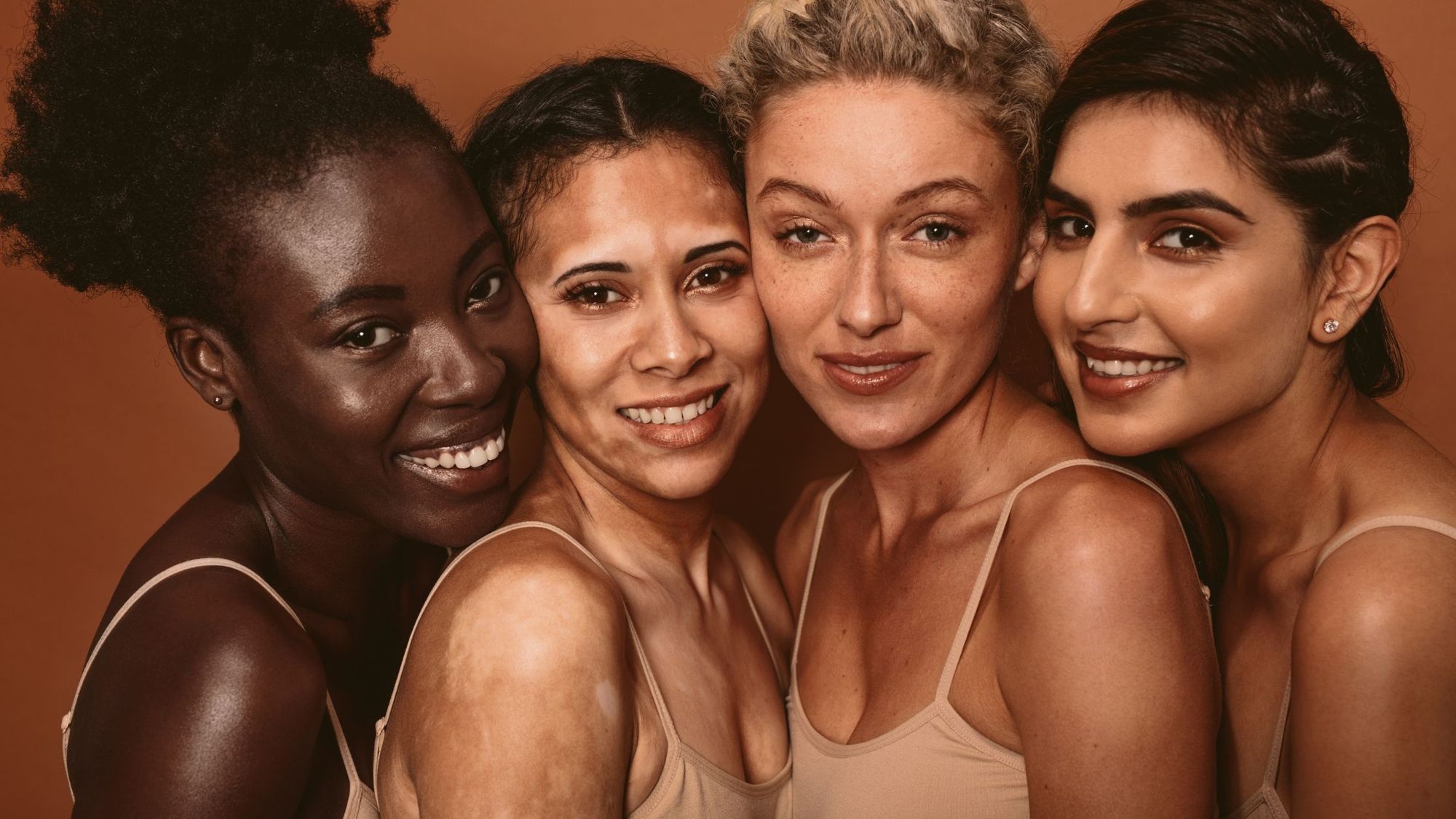
There are many different types of empowerment in today’s world. With International Women’s Day coming up, many people are talking about female empowerment, but in this article we’ll provide an overview of 9 different types of empowerment, each important for its own reason.
So, what does ‘empowerment’ mean, in general terms? On a broad scale, becoming empowered means having the strength, opportunity, and freedom to make your own choices in life. Fundamentally, we all want the power to make our own decisions, free from being controlled, coerced or manipulated.
We all want to be the architects of our own futures, capable of determining where we want to work, who we want to build relationships with, and even where we seek out education and enlightenment.
When a person is truly empowered, they’re free to tailor their experience of the world to their own individual needs. Alternatively, when the ability to choose is taken from us, we feel prohibited, restricted, marginalized and oppressed.
Types of Empowerment
Empowerment is one of the core components of a truly equal society, where everyone is given the same authority over their own lives. Unfortunately, a lack of empowerment can be relatively common in many environments, and in many cultures.
Throughout the world, certain people and groups receive fewer opportunities and choices, based on their race, sexuality, gender, age, and other factors.
Each of the different types of empowerment we can pursue is influenced and affected by numerous factors, from culture to geographical location and politics.
Below, we’ll explore some of the most common types of empowerment, and how they’re cultivated. Here is an overview of 9 important types of empowerment:

1. Individual Empowerment
Individual, or personal empowerment is a component of good mental health. If you feel personally empowered, you believe in your own ability to make choices and take control of your own life. You trust in your own abilities, set achievable goals for yourself, and take responsibility for your actions.
High levels of personal empowerment are generally connected to attributes such as high self-confidence and self-esteem. If you’re individually empowered, you don’t necessarily believe you can accomplish anything, but you do understand your strengths and weaknesses, and take action to transform your own life.
People who feel personally empowered don’t just set goals, they consistently act upon their desires and ambitions. They may regularly push themselves out of their comfort zones in order to unlock new opportunities. Crucially, being personally empowered does mean taking accountability for your life, but it doesn’t have to mean avoiding asking others for help.
To be more individually empowered, you’ll need to focus on getting to know yourself, your priorities, and what you want out of life. Stop comparing yourself to others, and set goals based on what makes you happy.
Another major factor in becoming individually empowered is recognizing that nobody else is responsible for how your life turns out except for you. It’s about recognizing that individual responsibility you have to yourself, to make decisions that will benefit the future you.

2. Social Empowerment
Similar to individual empowerment and many other types of empowerment, social empowerment relies heavily on your confidence and belief in yourself. However, social empowerment takes place on both an individual and cultural, or collective level. For instance, as an individual, being socially empowered may involve choosing where you want to go to school, work, or spend your time, without worrying about being marginalized or isolated by specific niche groups.
On a collective level, social empowerment involves making sure everyone in an environment can feel included and supported, regardless of their ability, gender, and other factors. Social empowerment is a core focus of many non-profits and groups which advocate for the acceptance of all kinds of people.
For instance, members of LGBTQIA+ communities work hard to support those belonging to all gender identity and sexuality groups. Social workers and governmental groups also implement initiatives designed to socially empower specific people, such as those living in poverty, or areas without access to certain forms of healthcare or education.
People who contribute to social empowerment break down the barriers which would otherwise prevent certain groups from participating in specific communities. They fight against injustice and oppression, identifying barriers to community entry for specific groups.
3. Economic Empowerment
Economic empowerment involves having the right financial tools to contribute not only to the betterment of your own life, but the community or society you’re a part of. Economic empowerment is usually addressed on a large scale. For instance, many government groups invest in initiatives designed to ensure those living in poverty can access the financial resources they need for basic necessities, such as food and housing.
Nonprofit and charitable groups assist people in achieving personal levels of economic empowerment with access to budgeting tools, and resources for managing debt. There are even clubs and forums designed to assist people with wealth planning and investment.
People who are truly economically empowered don’t just have the ability to make purchases and access crucial necessities. They also have the ability to think beyond the basics of just surviving from a financial perspective. They can set financial goals, think holistically about the future, and overcome the causes of financial stress.
4. Educational Empowerment
Similar to other types of empowerment, educational empowerment takes place on a collective and individual level. While everyone may have different levels of intelligence in the modern world, creating an equal environment means ensuring we can all access the same educational resources to expand our knowledge and unlock new opportunities.
Cities and countries invest in educational empowerment by offering access to a range of educational resources, from free community classes to online documents, schools, and mentors. In many parts of the world, strategies and funding initiatives are developed to ensure people of all ages can access education. However, the level of education provided may differ depending on a person’s resources.
On a personal level, achieving educational empowerment means indulging your personal desire to learn, and giving yourself permission to consistently grow and develop your knowledge. People with true educational empowerment feel capable of seeking out support and opportunities related to their education, from a variety of different resources.
For example, if you don’t have the resources to attend University, you can become educationally empowered by seeking out a student loan or self-educating with online resources.
5. Organizational Empowerment
Commonly referenced in business and employment landscapes, organizational empowerment is based largely around creating an inclusive, supportive environment for all people within a specific group. If a company invests in organizational empowerment, they ensure every member of staff feels free to contribute to the development of the business.
Even individuals who aren’t managers, supervisors, or executives in a company should feel empowered to share insights, pursue goals, and contribute to the overall vision of the business. To ensure organizational empowerment, many businesses leverage two-way feedback strategies, which allow team members to take an active role in the growth of a brand.
Organizational empowerment doesn’t just refer to inclusion, diversity, and equality in business environments, however. Schools and educational facilities can contribute to organizational empowerment by allowing students to form groups dedicated to improving the learning experience for the entire student body.
6. Cultural Empowerment
Cultural, or community empowerment, similar to many types of empowerment. Like other types of empowerment, cultural empowerment supports people in choosing how they want to live their lives, according to pre-existing values. An individual who is culturally empowered feels comfortable retaining their cultural practices and traditions. For instance, a member of the Jewish community may feel more empowered when given options to eat kosher foods.
Enabling cultural empowerment requires a focus on education, acceptance, and understanding. Groups should be encouraged to learn about the values of people from different religious, social, and geographical backgrounds. Parents, teachers, and people in leadership positions can build an environment for cultural empowerment by teaching people to respect different belief systems.
On an individual level, people seeking cultural empowerment may need to learn how to set healthy boundaries based on their beliefs. They may need to explain their values and expectations to others, to help them understand their needs on a day-to-day basis.
7. Physical Empowerment
Physical empowerment involves embracing the ability to control how you mold and use your own body. On a collective level, governments and country leaders contribute to physical empowerment by giving individuals access to universal healthcare, so they can protect themselves from illness, learn about various ailments, and access assistance when necessary.
Government groups and collectives can also support physical empowerment by ensuring those with disabilities and specific physical needs still have access to the same opportunities as everyone else.
On an individual level, physical empowerment involves pursuing complete control over your own body. For instance, a person who is physically empowered should feel able to embrace their own sexuality, and choose whether they want to have children, what kind of physical experiences they want to pursue with other human beings, and so on.
Physically empowered people are free to decide what kind of diet they want to pursue (veganism, vegetarianism, etc), how often they want to exercise, how sexually active they want to be, and even whether they want to experiment with tattoos, and piercings. You should feel you have complete autonomy over how both you and others interact with your body.
You should also have complete autonomy over your sexuality, and physically empowered people won’t let themselves be objectified.
Achieving a high level of physical empowerment often involves a commitment to self-love and a high level of self-respect. Those who feel physically empowered love their body for what it is, have high body positivity, and feel free to express themselves however they see fit from a physical perspective.
8. Psychological Empowerment
On the other side of the coin to physical empowerment, is psychological empowerment, or the freedom to make choices regarding your own mental health and happiness. People become psychologically empowered when they embrace emotional intelligence. When you’re psychologically empowered, you’re able to recognize the emotions you feel, as well as the experiences of others.
Similar to most types of empowerment, psychological empowerment is embraced on a collective and individual level. From an individual perspective, you can become more psychologically empowered by honoring and intentionally sitting in your own emotions, seeking help when you feel overwhelmed by certain feelings, and learning more about psychological conditions. You can learn to self-regulate and practice impulse control whenever you’re experiencing heightened emotions.
People who are psychologically empowered are understanding and empathetic when connecting with other people. They’re aware of the emotional needs of the people around them, and understand how to protect their own mental health without harming others.
On a collective level, psychological empowerment means championing acceptance and education. Governments, organizations, and even educational facilities can provide resources designed to help people understand different psychological conditions. Similar to physical empowerment, psychological empowerment can also be enhanced by ensuring people with mental health conditions can access the same opportunities as everyone else.
9. Female Empowerment (or Gender Empowerment)
There are countless female empowerment groups all over the internet, and in various communities. For example, female entrepreneurs are often championed in specific celebrations, and the tech community often has a ‘women in tech’ event to celebrate females working in lead roles in tech.
All gender identities should feel capable of controlling their own lives and contributing to society. Most types of empowerment related to gender focus on pursuing equality for groups previously marginalized or given less opportunities than most.
For instance, female empowerment involves ensuring women can access the same opportunities in the worlds of work, education, and healthcare as men as well as get paid the same as men.
In the past, women have often been restricted from accessing certain basic rights, such as the right to an equal education, fair wages, and even the right to vote in political elections.
Female empowerment requires both a collective and individual effort from women and the communities they serve. Government groups, lawmakers, and even employers should be encouraged to treat women with the same respect as men. At the same time, women should feel confident in their ability to make decisions and control their own lives.
In the modern world, this quest for equality has begun to branch into other forms of gender identity. Today, gender empowerment collectives and initiatives look at ensuring people can access the same opportunities regardless of their gender identity or pronouns.
The Importance of Empowerment
While there are many different types of empowerment, all forms are crucial to creating a landscape for equality and inclusion. While larger collectives and groups can contribute to empowerment, by providing people with access to resources, opportunities and education, individuals need to be able to nurture their own sense of empowerment as well.
Becoming empowered is something every person deserves, regardless of their background, race, gender, or preferences.
It can be more difficult for some people to become empowered than it is for others. This is because some people are from oppressive cultures, for example cultures that still oppress and discriminate against women. Others come from controlling families or abusive relationships. Some people might have to work harder than others to lift themselves up and become empowered.
Motivational Interviewing, a popular psychological technique used by top therapists and counselors, can be a great way to start becoming more empowered.
Simple steps, such as learning more about your physical and mental health risks with a CircleDNA test can help you take control of your health and become empowered in that regard. You’ll also feel empowered by learning more about yourself with this at-home DNA testing kit’s 500+ reports about what’s in your DNA.
What else can you do to feel empowered? Don’t let others lead you down a path you’d rather not take. Setting boundaries and championing equality can help you to not only feel more empowered yourself, but also inspire others to make and respect their own choices.
References:
- United Way: WHAT IS SOCIAL EMPOWERMENT? EMPOWERMENT THEORY | UNITED WAY NCA
https://unitedwaynca.org/blog/social-empowerment/#:~:text=Social empowerment is the process,individual and the collective level. - Emerald:
A systematic review on organizational empowerment
https://www.emerald.com/insight/content/doi/10.1108/IJOA-02-2019-1657/full/html#:~:text=Organizational empowerment (OE) refers to,130). - Frontiers: How Does Psychological Empowerment Prevent Emotional Exhaustion? Psychological Safety and Organizational Embeddedness as Mediatorshttps://www.frontiersin.org/articles/10.3389/fpsyg.2021.546687/full#:~:text=Psychological%20empowerment%20is%20the%20manifestation,demands%20(Spreitzer%2C%201995).






